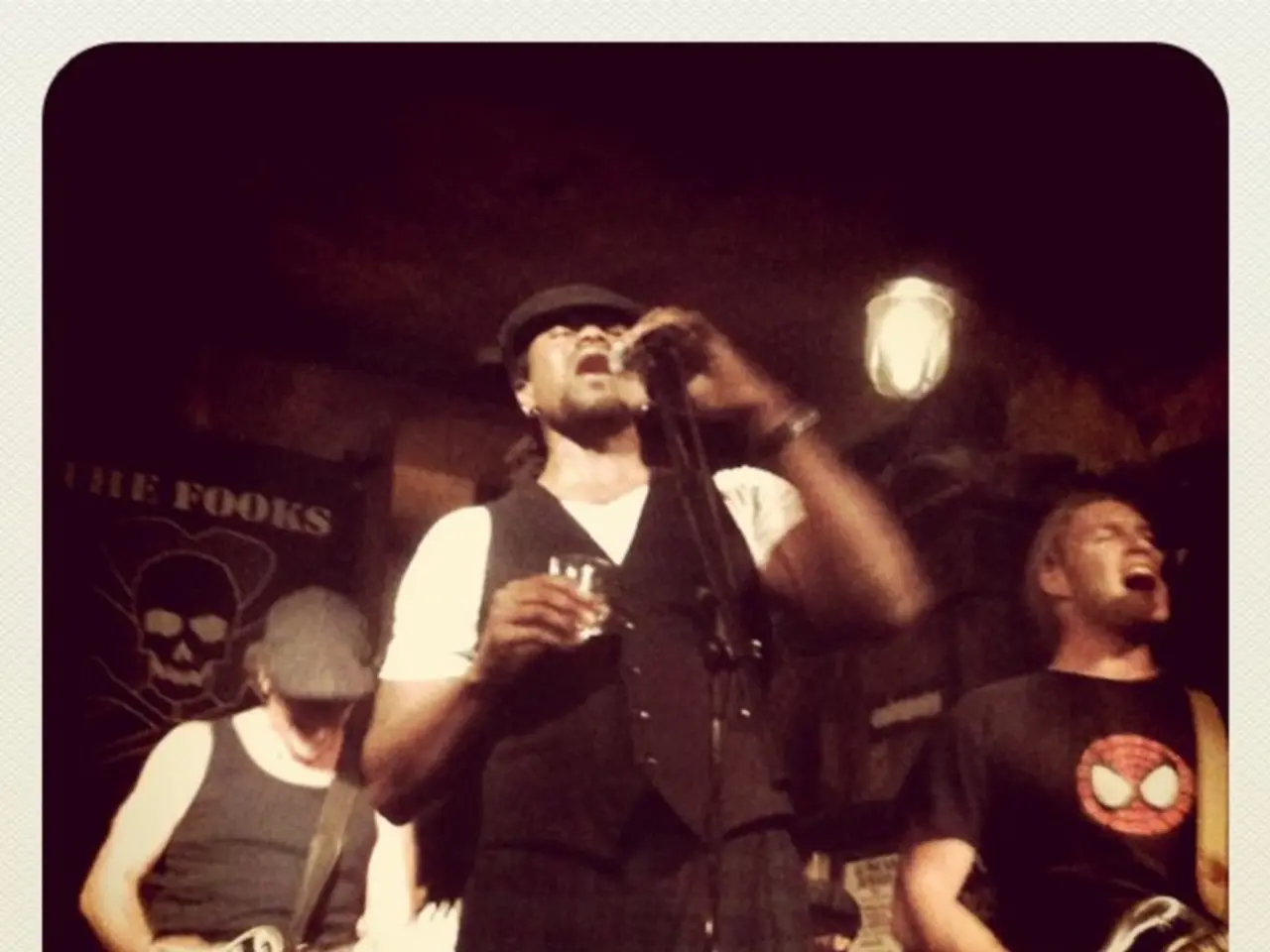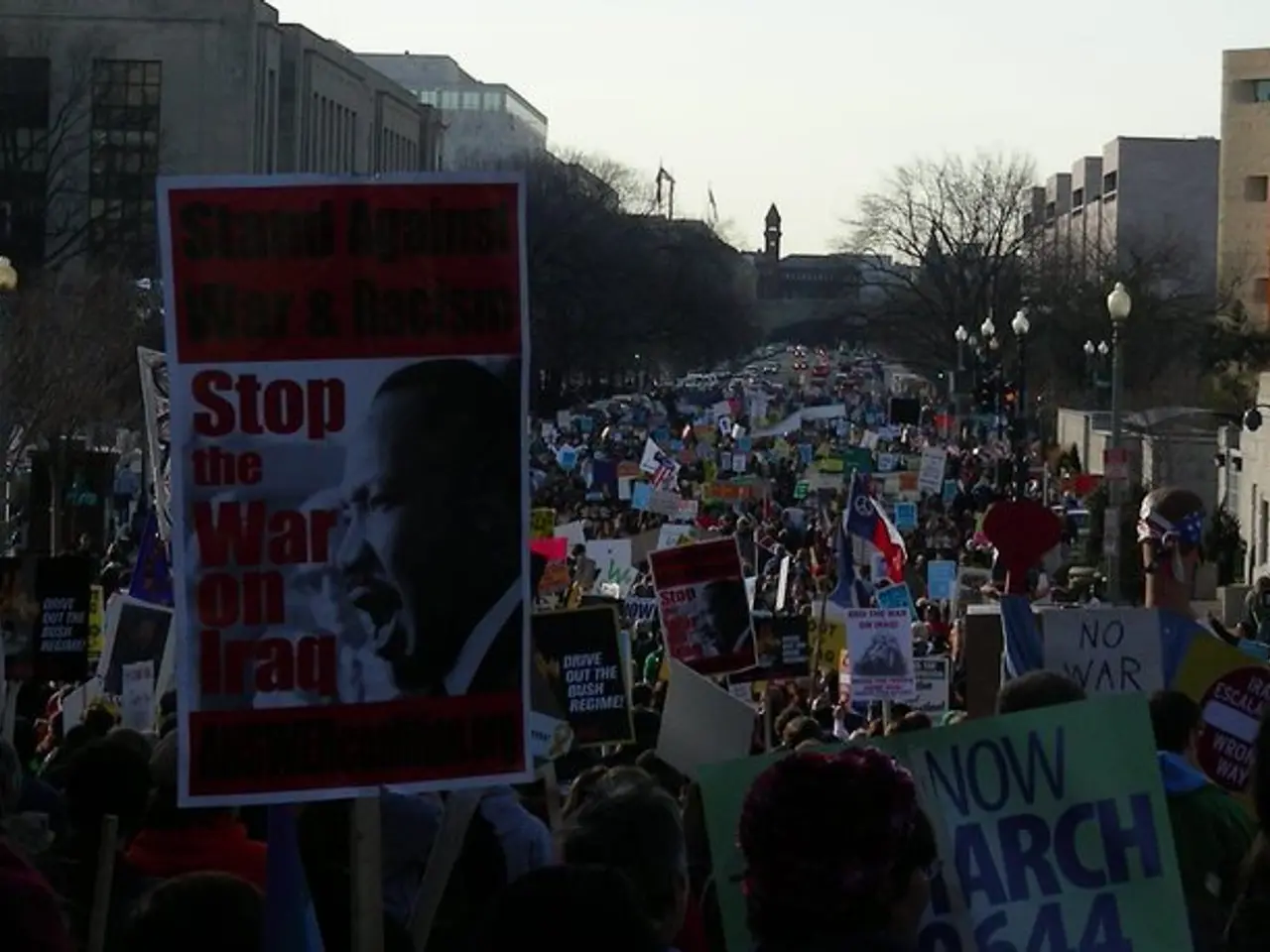Account of Frank 'The Irishman' Sheeran, Alleged Assassin Admitring to Jimmy Hoffa's Homicide - Lacking Verifiable Evidence
Frank Sheeran, a World War II veteran who participated in 411 combat days, has been at the centre of a long-standing mystery surrounding the disappearance of Jimmy Hoffa. Born in Camden, New Jersey, on October 25, 1920, Sheeran's life took a dramatic turn after the war, leading him to become embroiled in the underworld.
Sheeran's alleged involvement in the criminal world is backed by former FBI agent John Tamm, who asserted that Sheeran was a full-time criminal, but he has no personal knowledge of any killings attributed to Sheeran. However, Sheeran is alleged to have been responsible for the murder of "Crazy Joe" Gallo, a claim supported by a woman who was an editor with The New York Times, who identified Sheeran as the shooter she had seen at Gallo's murder.
One of the most notorious allegations against Sheeran concerns the disappearance of Jimmy Hoffa on July 30, 1975, in the parking lot of the Machus Red Fox Restaurant. Sheeran claimed to have been ordered by Russell Bufalino, a Mafia boss, to kill Hoffa. According to Sheeran's confessions, he took Hoffa to an empty house, where he shot him twice in the back of the head.
Sheeran further alleged that Hoffa's body was taken to a crematorium. However, multiple investigations and experts have disputed these claims. Searches of the locations identified by Sheeran, including the Detroit house, yielded no evidence linking Hoffa to those sites, and blood found in the Detroit house was determined not to be Hoffa's.
Despite Sheeran's claims in Charles Brandt’s 2004 book I Heard You Paint Houses, many law enforcement officials and legal experts have dismissed Sheeran’s story as unreliable. No evidence has been found linking Frank Sheeran to Hoffa’s murder, despite years-long investigations by local and federal authorities.
Other confessions, such as those by mob hitman Richard Kuklinski, have also been met with skepticism and lack corroborating evidence. Despite repeated searches and FBI investigations based on various tips, Hoffa’s body has never been found. This ongoing absence of physical evidence leaves Sheeran’s confession as unverified and widely regarded as disputed or implausible.
John Carlyle Berkery, another mobster from Philadelphia, claimed that Frank Sheeran never killed a fly, suggesting a contrasting view of Sheeran's violent reputation. After the war, Sheeran returned to Philadelphia and began working as a truck driver. It was during this time that he allegedly met Russell Bufalino, who noticed Sheeran and hired him for odd jobs.
Sheeran's confessions about his involvement in crimes, including murders, are yet to be verified. Despite the uncertainty surrounding these claims, Frank Sheeran's life and alleged actions continue to intrigue and captivate, leaving many questions unanswered.
[1] Berkery, J. C. (2013). The Last Mafioso: The Life, Loves, and Crimes of John C. Berkery. New York: Skyhorse Publishing.
[3] Brandt, C. (2004). I Heard You Paint Houses: Frank Sheeran and the Inside Story of the Mafia, the Teamsters, and the Final Ride of Jimmy Hoffa. New York: Simon & Schuster.
[5] Maas, A. (2012). The Executioner's Song: Nixon, Agnew, Mitchell, and the Watergate Scandal. New York: Vintage Books.
- The intrigue surrounding Frank Sheeran's life extends beyond his alleged involvement in crimes, reaching realms such as culture, entertainment, and general news, as evidenced by the numerous books and movies based on his life, like "I Heard You Paint Houses" by Charles Brandt and John C. Berkery's "The Last Mafioso."
- Frank Sheeran's confessions have straddled the lines between science, politics, and crime-and-justice, with skepticism and debates arising over the veracity of his claims regarding the murder of "Crazy Joe" Gallo, the disappearance of Jimmy Hoffa, and his allegations backed by former FBI agent John Tamm.
- The absence of physical evidence in the Jimmy Hoffa case, coupled with conflicting testimonies and investigations, has fueled discussions in various academic and political circles, with many legal experts viewing Sheeran's story as unreliable, as seen in literature like "The Executioner's Song" by Albert Maas.
- Despite the claims made by other mobsters, such as Richard Kuklinski, about Sheeran's criminal actions, the lack of corroborating evidence has left many these confessions unverified and widely regarded as disputed or implausible, contributing to the ongoing mystery surrounding Frank Sheeran's life and actions.







